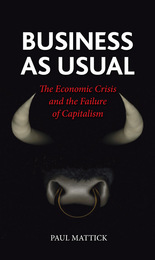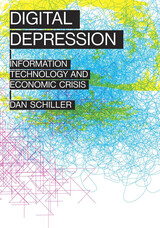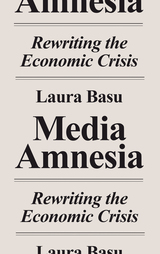
Although it would be premature to presume to identify the exact repercussions of the current economic crisis, it is clear that it will have profound effects in the political, economic, and social spheres. Written in the midst of the deepest economic crisis since the Great Depression, Aftershocks contains twenty-four essays—based on interviews with scholars, prominent European politicians, and leading figures from business and banking—that reflect on the origins of the crisis as well as the possible social, economic, and political transformations it may engender. Among the many contributors are Barry Eichengreen, Tony Atkinson, David Soskice, Nancy Birdsall, Amitai Etzioni, Helmut Schmidt, and Jacques Delors.

The recent global economic downturn has affected nearly everyone in every corner of the globe. Its vast reach and lingering effects have made it difficult to pinpoint its exact cause, and while some economists point to the risks inherent in the modern financial system, others blame long-term imbalances in the world economy. Into this debate steps Paul Mattick, who, in Business as Usual, explains the global economic downturn in relation to the development of the world economy since World War II, but also as a fundamental example of the cycle of crisis and recovery that has characterized capitalism since the early nineteenth century.
Mattick explains that today’s recession is not the result of a singular financial event but instead is a manifestation of long-term processes within the world economy. Mattick argues that the economic downturn can best be understood within the context of business cycles, which are unavoidable in a free-market economy. He uses this explanation as a springboard for exploring the nature of our capitalist society and its prospects for the future.
Although Business as Usual engages with many economic theories, both mainstream and left-wing, Mattick’s accessible writing opens the subject up in order for non-specialists to understand the current economic climate not as the effect of a financial crisis, but as a manifestation of a truth about the social and economic system in which we live. As a result the book is ideal for anyone who wants to gain a succinct and jargon-free understanding of recent economic events, and, just as important, the overall dynamics of the capitalist system itself.

Hard times are no stranger to the people of Appalachia and the South. Earlier books have documented the low wages of the textile industry, boom-and-bust cycles of coal mining, and debt peonage of Southern agriculture that have established a heritage of poverty that endures. This book is a unique collection of essays by people who are actively involved in the efforts to challenge economic injustice in these regions and to empower the residents to build democratic alternatives.
In the series Labor and Social Change, edited by Paula Rayman and Carmen Sirianni.



In this accessible and thought-provoking volume, Benjamin M. Friedman investigates the origins of financial crisis in domestic capital markets, Paul Krugman examines the international origins and transmission of financial and economic crises, and Lawrence H. Summers explores the transition from financial crisis to economic collapse. In the introductory essay, Martin Feldstein reviews the major financial problems of the 1980s and discusses lessons to be learned from this experience. The book also contains provocative observations by senior academics and others who have played leading roles in business and government.
READERS
Browse our collection.
PUBLISHERS
See BiblioVault's publisher services.
STUDENT SERVICES
Files for college accessibility offices.
UChicago Accessibility Resources
home | accessibility | search | about | contact us
BiblioVault ® 2001 - 2025
The University of Chicago Press









